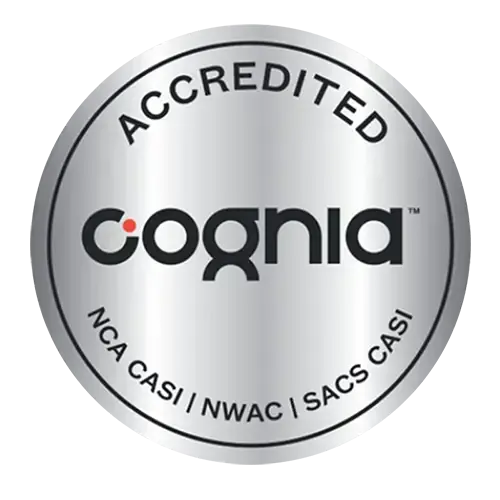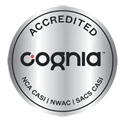Barbara Farland is an English & Social Studies instructor at Brightmont Academy in Plymouth, Minn. She holds a master’s degree in Business Communication from the University of St. Thomas and, prior to pursuing a second career in education, worked as an award-winning public relations and communications professional in both the corporate and nonprofit sectors. As a “storyteller by nature and teacher at heart,” Barbara continues to contribute to various anthologies, among other writing projects.
How Brightmont Supports Students with Executive Function Challenges
Vanessa seems to dawdle when her teacher asks her to begin her math assignment. Marcus has read the directions four times and still has no idea what to do. Shamanth opens his desk to try to find a pencil, which is buried under mounds of crumpled papers. Belinda raises her hand and, in sobs and tears, demands to go to the school counselor’s office.
What’s up with these students? Are they being lazy, giving their teacher a hard time, and/or just having a bad day? Perhaps, but there’s also another strong possibility. All of these behaviors may indicate challenges in executive functioning.
About Executive Function
Executive functioning has very little to do with academic prowess and much more to do with the general operation of the brain. Healthcare and child development professionals typically identify eight important skills related to executive functioning:
- Initiation - The ability to begin a task
- Impulse control - The ability not to give in to temptation and behave accordingly
- Flexibility - The ability to shift from one task to the next
- Emotional control - The ability to behave appropriately despite contrary emotions
- Working memory - The ability to remember and apply instructions and other concepts
- Organization - The ability to create and abide by a system of tidiness
- Planning - The ability to understand the sequence of necessary steps to accomplish goals and tasks
- Self-monitoring - The ability to assess one’s own emotions, thoughts, physical condition, etc.
Why are these specific capabilities so important? It’s all about what happens as a result. Executive functioning skills lead to effective decision-making, for example, thus poor executive functions could lead to choices that are unwise, emotionally driven, rash, etc., in relationships, physical health, and other areas of life.

Furthermore, what is learned and practiced in childhood is more likely to become habitual, even natural, in adulthood. How students keep track of papers and supplies through elementary and secondary school may influence how they manage money, bills, personal assets, etc., as grown-ups. How they learn how to regulate their emotions and behaviors in the classroom and among friends may color their future interactions as an employee, spouse, parent, etc.
Supporting Executive Function at Brightmont

Indeed, a lot is at stake relative to executive functioning and how it is nurtured. Fortunately, that’s exactly why Brightmont Academy exists. Brightmont is “the one-to-one school,” meaning each student gets the undivided attention of one teacher during each class session—and, in turn, executive functioning is kept in ever-sharp focus. Here’s how:
- Integrated skill building - Brightmont is an accredited private school that many students attend full-time. Most encountered difficulties in a traditional school environment because of ADHD, anxiety, etc., and Brightmont provides the accommodations and atmosphere that better meet their needs. Because of their diagnoses, many of these students require extra support in managing and developing executive function skills. Practically speaking, Brightmont supports executive function through strategies in metacognition, which is thinking about one’s thoughts: how information is being processed, what feelings surface during different tasks, etc. The teacher’s rapt attention on one student at a time also helps establish good habits in organization, transitions, goal-setting, etc. In addition to classes, Brightmont offers Homework Studio, a study hall of sorts, that helps students accomplish all of their assignments on site under a teacher’s supervision. In other words, as full-time students address their coursework at Brightmont, executive skill building is naturally integrated into their school experience.
- Executive functioning program -
When executive functions in task management and organization are preventing students from otherwise excelling at their current schools, Brightmont’s E.C.H.O. program can help. E.C.H.O.—which stands for “Executive Function Coaching and Homework Organization”—does just what its name implies: the 20-session program teaches students techniques in keeping track of and accomplishing homework, then assesses their progress in applying those techniques. Again, Brightmont’s one-to-one teaching model reduces classroom distractions and improves the likelihood of obtaining important skills that last a lifetime.
- Tutoring - Brightmont also offers tutoring in subjects that have become challenging to students whatever those subjects might be. Sometimes these tutoring sessions reveal weaknesses in executive functioning, but all of Brightmont’s teachers/tutors are equipped to identify and develop a plan for addressing such needs. Just like all of Brightmont’s students, tutored students experience a thoughtful, holistic approach to learning.
Be a Problem Solver, a mental health organization serving North Carolina, puts it this way: “Executive function is the brain’s ability to turn intentions into actions. It’s the foundation of success.” Every student deserves a chance to move forward and grow and claim rich lives of meaning and purpose. Thanks to Brightmont’s expertise and coaching in executive functioning, they can.
SOURCES:
https://www.brownhealth.org/be-well/executive-functioning-helping-children-learn-skills-life
More Blog Posts + News













